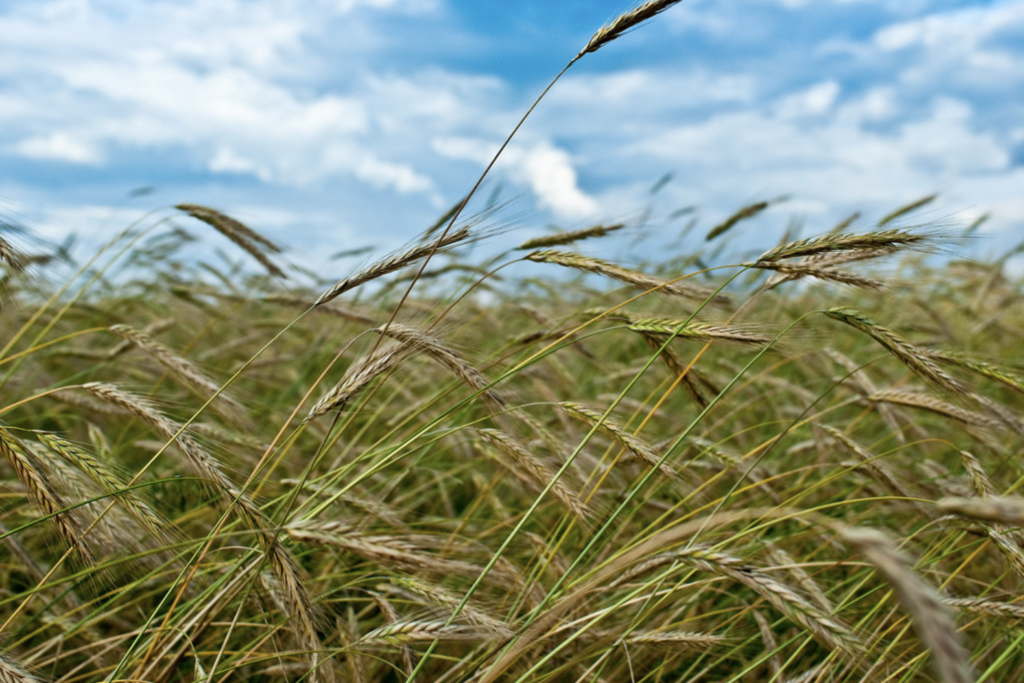
On the 19th of September 2023, Ukraine declared that it would be filing a complaint at the WTO against Slovakia, Hungary and Poland after all three states continued to impose an import ban on grain and other agricultural goods originating from Ukraine, despite the EU Commission lifting the ban. Grain and other agricultural products in transit are exempted from this ban.
All three states, which are also part of the Visegrad Group, support their grain ban with the argument that an outright grain ban is necessary to protect domestic grain production – primarily their farmers – vis-à-vis cheap Ukrainian grain. Ukraine is, in fact, the biggest grain exporter worldwide. Additionally, Slovakia, Hungary and Poland claim that cheap Ukrainian grain would significantly undermine their domestic markets.
This argumentation was not received sympathetically by Ukraine, as its global grain export has suffered significantly due to the war in Ukraine. Ukrainian Economy Minister, Yulia Svyrydenko, stated that proving the grain ban to be illegal is crucial for Ukraine. Consequently, Ukraine seeks recourse before the WTO against the unilateral grain ban imposed by all three states. At the same time, all three states remain unimpressed by the steps taken by Ukraine and continue to stand by their importation ban on grain and other agricultural products.
The aim of this short blog post is to briefly examine the legal aspects of this importation ban and the potential for success. First, according to Article XXIII:1 of the GATT 1994, a WTO member may seek recourse through the dispute settlement mechanism of the WTO. All parties to the dispute are WTO members. Additionally, Article 3.7 of the DSU allows any WTO member to bring a case before the dispute settlement mechanism if they believe they have a valid case. From the foregoing, it is clear that Ukraine, as an affected grain exporter, has a valid claim before the WTO.
Second, the grain importation ban imposed by Slovakia, Poland and Hungary is a quantitative restriction per Article XI of the GATT 1994, which is prohibited as it restricts international trade.
Thirdly, importation bans may be justified as demonstrated by the Appellate Body in Brazil-Retreated Tyres (para. 258(a)(i)), a case where Brazil placed an importation ban on retreated tyres, under the general exception scheme of Article XX of the GATT 1994. To be justified, a measure must be provisionally justified under one subparagraph of Article XX of the GATT 1994 and then meet the chapeau requirement.
Based on the justification provided so far by public officials of Slovakia, Hungary and Poland – that the importation ban aims to protect domestic farmers producing grain – it does not seem to fall into any of the ten paragraphs (a)-(j) that deal with specific policy objectives under which a measure may be legitimately pursued. Even if it would fall into one of the ten paragraphs and thus be provisionally justifiable, it would most likely fail the chapeau test of Article XX of the GATT 1994.
The chapeau aims to prevent arbitrary misuse of Article XX of the GATT 1994 exceptions and therefore, has a high bar to meet. Thus, according to the Appellate Body in US—Shrimp (1998) (para. 157), under the chapeau, the measure may not constitute ‘arbitrary or unjustifiable discrimination between countries where the same conditions prevail’ or ‘a disguised restriction on international trade’. The importation ban on grain may be viewed as an unjustifiable discrimination because similarly as in US-Shrimp (1998), it undermines the WTO trading system. However, according to Bartels (2015) what ‘arbitrary and unjustifiable’ really means was left open in US-Shrimp (1998). According to Bartels (2015) this is a necessity test. Hence, in order to pass the chapeau requirement, there must be no other measure reasonably available to the regulating party that achieves its objective in a less discriminatory manner, which is currently not evident based on the information provided so far. As such, Slovakia, Hungary and Poland would not likely be able to justify their importation ban on grain.
However, should Slovakia, Hungary and Poland appeal a Panel Report by triggering the process under Article 16.4 of the DSU, then the case will proceed to the Appellate Body. Unfortunately, however, such an appeal to the Appellate Body would be an appeal into the void, as it has been dysfunctional since 2019 because both the Trump and the Biden Administrations refused to appoint or reappoint Appellate Body members i.e. judges. Hence, no appeal can currently be heard. As such, an outcome of this case would remain unresolved within the WTO system. However, both the EU and Ukraine are parties to the Multi-Party Interim Appeal Arbitration Arrangement (MPIA), so if there were an appeal it would not go into the void, but instead go to arbitration.
We are awaiting how the dispute will be resolved, whether the parties agree out of court or whether it will proceed to the litigation stage where further inconsistencies with WTO law may arise. It is anticipated that a diplomatic solution will be found. Nonetheless, this brief blog post has highlighted the legal standpoint related to an importation ban and the likely outcome of the case.
Renatus Otto Franz Derler is Blog Manager and Conference Convenor (2023-24) with the Cambridge International Law Journal, and an MPhil in Environmental Policy Candidate at the University of Cambridge